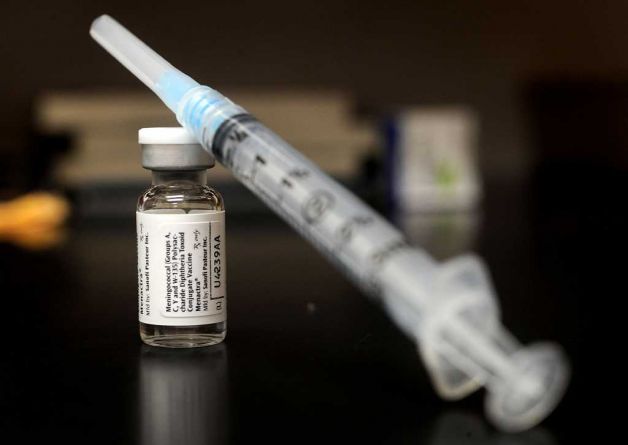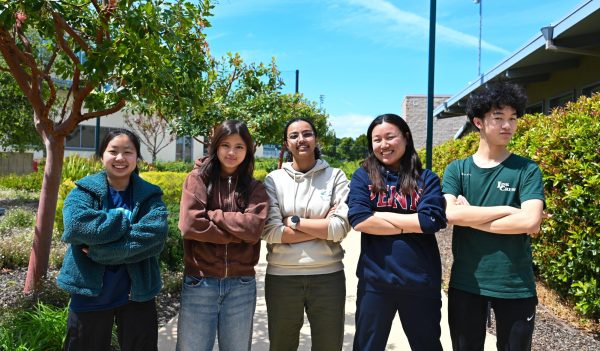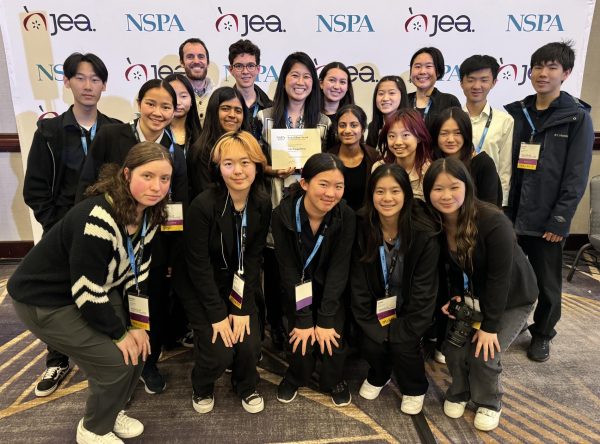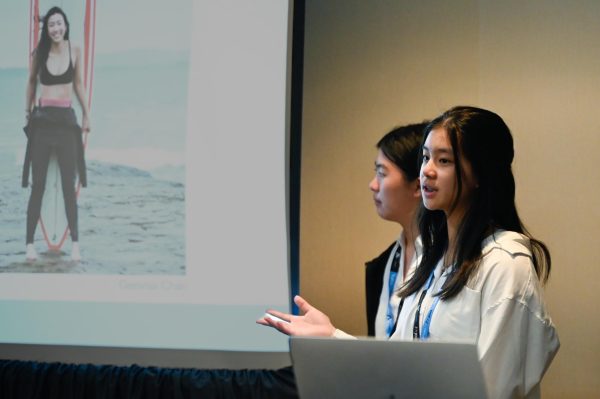Meningitis case at upper school
Wikimedia Commons
Viral meningitis typically develops from viruses such as enterovirus, mumps, herpes, measles and influenza. The upper school currently requires all students to be vaccinated against polio, diphtheria, tetanus, pertussis, measles, mumps, rubella, hepatitis B, and chickenpox.
February 19, 2016
After an upper school student contracted viral meningitis before Presidents’ week break, Harker’s Director of Health Services Debra Nott emailed upper school parents information on the illness and its vaccinations.
Contracted through viral or bacterial infection, meningitis causes the inflammation of membranes surrounding the brain and spinal cord, and mainly affects young children and teenagers. The Center for Disease Control (CDC) describes common symptoms of viral meningitis as high fever, stiff neck, headaches, sensitivity to light, fatigue, nausea, loss of appetite, and vomiting. At the outset, symptoms often appear flu-like.
Viral meningitis typically develops from viruses such as enterovirus, mumps, herpes, measles and influenza.
“Viral meningitis is not very contagious, [while] bacterial meningitis can be quite contagious,” Nott said in an interview with Harker Aquila. “Viral meningitis…is not an illness in and of itself; it’s a complication of an illness. The most common virus that causes meningitis is an enterovirus.”
The upper school requires all students to be vaccinated against polio, diphtheria, tetanus, pertussis, measles, mumps, rubella, hepatitis B, and chickenpox.
“If you are immunized against those diseases that cause viral meningitis that really decreases the chance that you will ever get viral meningitis as a complication,” Nott said.
Nott shared some advice for staying healthy.
“Since meningitis is a complication of the illness, what you want to do is not get the original illness,” Nott said. “Wash your hands, don’t put your fingers in the holes in your face because that’s how you put the virus into your upper respiratory system, eat a healthy diet, and get enough sleep at night.
The CDC recommends that children between the ages of 11 and 12 be vaccinated once with the meningococcal vaccine Menactra, with 16 year olds receiving a second dose. A quadrivalent vaccine, Menactra protects against four serogroups, or strains: A, C, W and Y. Patients between the ages of 16 to 23 can be immunized against serogroup B meningococcal disease with a new vaccine, which the the U.S. Food and Drug Administration (FDA) approved in 2014.
According to the CDC, while both viral meningitis and bacterial meningitis include the same initial symptoms, patients with viral meningitis typically recover within 7 to 10 days after falling ill, whereas patients with bacterial meningitis often experience serious complications including brain damage, hearing loss and learning disabilities.
The viral case at the upper school follows a bacterial meningitis outbreak at Santa Clara University, where three undergraduate students contracted the B strain of the bacterium in early February. Last week, the Santa Clara Public Health Department and California Department of Public Health vaccinated a total of 4,923 students at the Santa Clara University campus against the serogroup B strain for free.
In response to the outbreak (according to the CDC, in some areas even two cases constitute an outbreak), Rite Aid has stocked all 17 of its Santa Clara county pharmacies with the serogroup B vaccine, and other drugstores are expected to follow suit.































![Setter Emma Lee (9) sets the ball to the middle during the match against Pinewood on Sept. 12. “[I’m looking forward to] getting more skilled, learning more about my position and also becoming better friends with all of my teammates, Emma said.](https://harkeraquila.com/wp-content/uploads/2023/09/DSC_4917-2-1200x795.jpg)





































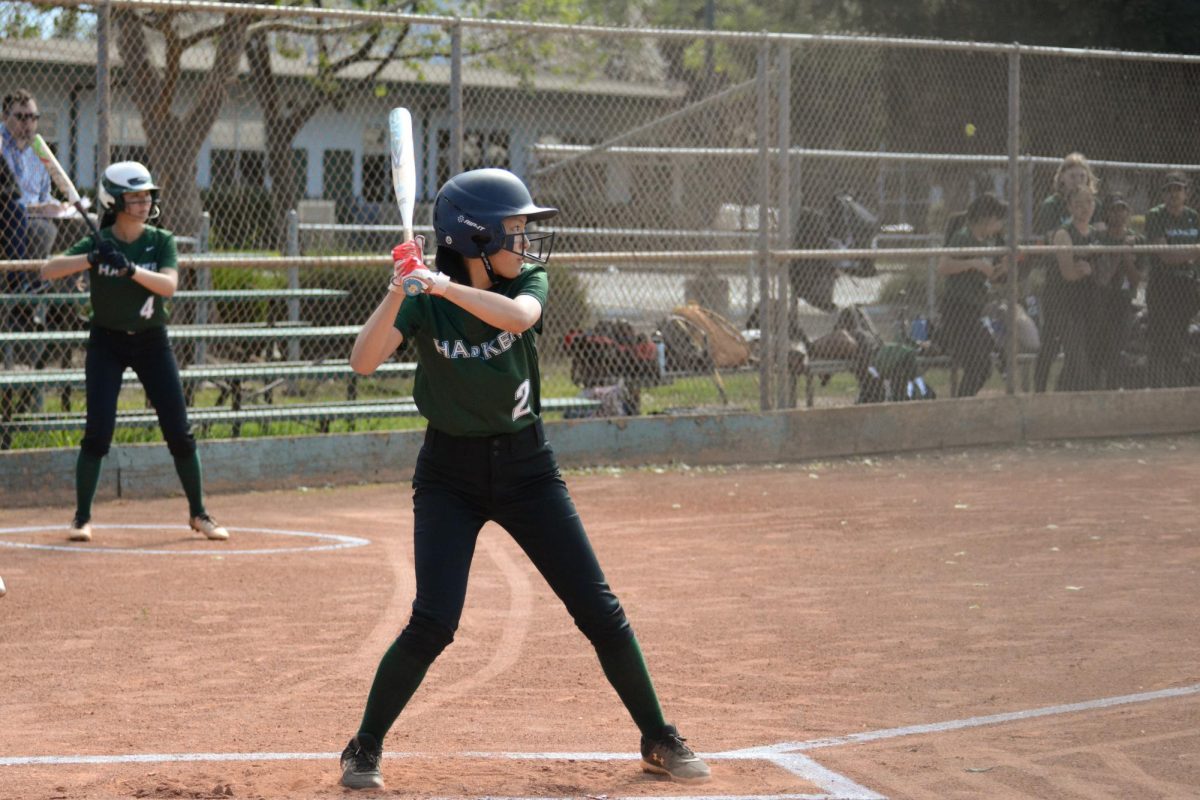









































![“[Building nerf blasters] became this outlet of creativity for me that hasnt been matched by anything else. The process [of] making a build complete to your desire is such a painstakingly difficult process, but Ive had to learn from [the skills needed from] soldering to proper painting. Theres so many different options for everything, if you think about it, it exists. The best part is [that] if it doesnt exist, you can build it yourself, Ishaan Parate said.](https://harkeraquila.com/wp-content/uploads/2022/08/DSC_8149-900x604.jpg)


![“Animation just clicked in a way. I had been interested in art, but that felt different. [Animation] felt like it had something behind it, whereas previous things felt surface level. I wasnt making that crazy of things, but just the process of doing it was much more enjoyable, Carter Chadwick (22) said.](https://harkeraquila.com/wp-content/uploads/2022/08/Screen-Shot-2022-08-16-at-9.44.08-AM-900x598.png)


![“When I came into high school, I was ready to be a follower. But DECA was a game changer for me. It helped me overcome my fear of public speaking, and its played such a major role in who Ive become today. To be able to successfully lead a chapter of 150 students, an officer team and be one of the upperclassmen I once really admired is something Im [really] proud of,” Anvitha Tummala (21) said.](https://harkeraquila.com/wp-content/uploads/2021/07/Screen-Shot-2021-07-25-at-9.50.05-AM-900x594.png)



![“[Volleyball has] taught me how to fall correctly, and another thing it taught is that you don’t have to be the best at something to be good at it. If you just hit the ball in a smart way, then it still scores points and you’re good at it. You could be a background player and still make a much bigger impact on the team than you would think,” Anya Gert (’20) said.](https://harkeraquila.com/wp-content/uploads/2020/06/AnnaGert_JinTuan_HoHPhotoEdited-600x900.jpeg)

![“Im not nearly there yet, but [my confidence has] definitely been getting better since I was pretty shy and timid coming into Harker my freshman year. I know that theres a lot of people that are really confident in what they do, and I really admire them. Everyones so driven and that has really pushed me to kind of try to find my own place in high school and be more confident,” Alyssa Huang (’20) said.](https://harkeraquila.com/wp-content/uploads/2020/06/AlyssaHuang_EmilyChen_HoHPhoto-900x749.jpeg)













![“My slogan is ‘slow feet, don’t eat, and I’m hungry.’ You need to run fast to get where you are–you arent going to get those championships if you arent fast,” Angel Cervantes (12) said. “I want to do well in school on my tests and in track and win championships for my team. I live by that, [and] I can do that anywhere: in the classroom or on the field.”](https://harkeraquila.com/wp-content/uploads/2018/06/DSC5146-900x601.jpg)

![“I think getting up in the morning and having a sense of purpose [is exciting]. I think without a certain amount of drive, life is kind of obsolete and mundane, and I think having that every single day is what makes each day unique and kind of makes life exciting,” Neymika Jain (12) said.](https://harkeraquila.com/wp-content/uploads/2017/06/Screen-Shot-2017-06-03-at-4.54.16-PM.png)









